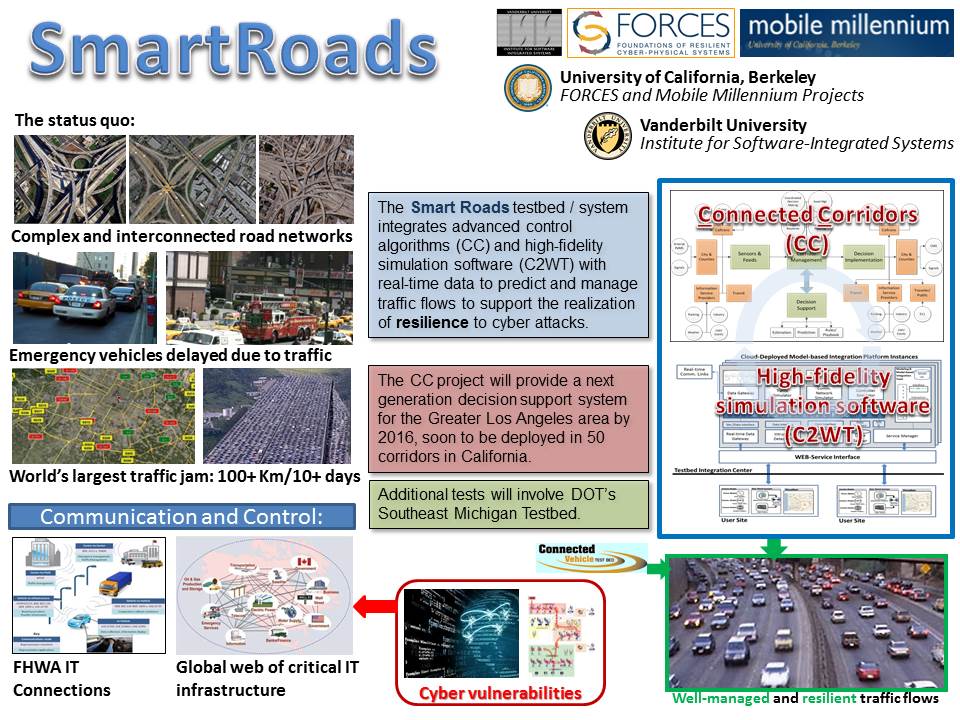Smart Roads
 The potential of Smart Transportation Systems (STS) is enormous: improvements in travel time and road safety, reductions in congestion, and improvements in the performance of the road system and fuel efficiency can easily be translated into economic benefits. Such systems rely not only on improved sensors and control devices and clever methods for managing the complex traffic flows but also on computer networks and similar ‘cyber’ elements. As such, they are vulnerable to cyber-attacks at any point of the system. A hacker can indeed wreak havoc by mis-timing traffic lights or enabling conflicting traffic leading to collisions.
The potential of Smart Transportation Systems (STS) is enormous: improvements in travel time and road safety, reductions in congestion, and improvements in the performance of the road system and fuel efficiency can easily be translated into economic benefits. Such systems rely not only on improved sensors and control devices and clever methods for managing the complex traffic flows but also on computer networks and similar ‘cyber’ elements. As such, they are vulnerable to cyber-attacks at any point of the system. A hacker can indeed wreak havoc by mis-timing traffic lights or enabling conflicting traffic leading to collisions.
The Smart Roads Cyber-Physical System demonstration project will show what advanced computing and networking technology can do for everyday life – even if the technology is under pressure from cyber-attacks. The demonstration will play out a scenario that shows how the collection of real-time traffic enables the control the traffic flow on a segment of an interstate, near a major city. When the system detects a trend towards congestion it starts metering the access ramps thus improving the flow. Such tightly integrated cyber-physical systems are being developed today but they are vulnerable to cyber-attacks. Such attacks can lead to, for instance, mis-timed traffic lights that cause congestion or even accidents. The demonstration will also show how the ‘cyber’ system can detect such attacks, inform decision makers, and potentially even take mitigation actions. The Smart Roads testbed integrates real-life data with high-fidelity simulations of the road system and the networks. The potential of Smart Transportation Systems (STS) is enormous: improvements in travel time and road safety, reductions in traffic congestion, and improvements in road system performance and fuel efficiency can easily be translated into economic benefits. A Smart Road will save lives by making travel safer, will provide economic improvements by decreasing fuel costs and losses due to congestion (estimated at $400 million in extra costs and $3.5 million lost in wages per day, in CA), and will provide business opportunities and fuel job creation in a various industries, ranging from the conventional (manufacturing, construction, transportation) to the knowledge-oriented (data analytics, green energy, electronics). UC Berkeley and Vanderbilt University are participating. A resilient STS that can survive and recover from cyber-attacks is our objective. We plan to show how an STS improves our daily life today and how it can be designed in such a way that to mitigate the effects of deliberate cyber-attacks.
Team Members
- Gabor Karsai, Vanderbilt University
- University of California, Berkeley: FORCES and Mobile Millennium
- Vanderbilt University: Institute for Software-Integrated Systems (ISIS)
